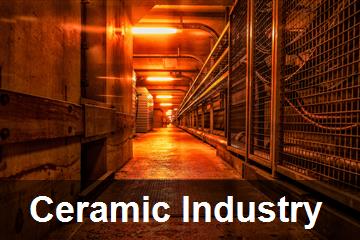
04 ott 2024
The European ceramic industry faces significant challenges due to international crises, EU regulations, and unfair competition, particularly from India.
Industry leaders emphasize the need for revised EU policies on CO2 emissions and advocate for a 'Made in Europe' label to ensure product origin transparency.
Despite these challenges, the sector remains a leader in quality and exports, with substantial investments in green initiatives.
Italian industry representatives call for a balanced transition respecting technological neutrality and highlight the importance of energy diversification, including nuclear options.

The European ceramic industry is currently navigating a complex landscape marked by international crises and the aftermath of the Superbonus initiative.
A significant concern is the EU's Emissions Trading System (ETS) for CO2 emissions, which industry leaders argue is flawed and detrimental to their competitiveness.
Additionally, unfair competition, particularly from India, exacerbates these challenges, with calls for a 'Made in Europe' label to ensure transparency in product origins.
Despite these hurdles, the ceramic sector is recognized for its excellence, with over 80% of its revenue coming from exports.
The industry has made significant investments in enhancing quality and sustainability, with a reported 2 billion euros directed towards green initiatives.
This commitment to environmental responsibility is evident in the progress made in recycling and waste recovery, achieving 2030 targets by 2021.
Emanuele Orsini, President of Confindustria, emphasizes the need to revisit the ETS mechanism, which he describes as speculative and potentially market-disruptive.
He highlights the 67% increase in Indian imports as a result of unfair competition and stresses the importance of a balanced transition that respects technological neutrality.
The Italian industry has demonstrated its environmental commitment, particularly in packaging, and seeks EU support to ensure its continued growth.
Energy remains a pivotal issue, with both Orsini and Augusto Ciarrocchi, President of Confindustria Ceramica, advocating for accelerated development of nuclear energy, including next-generation mini reactors.
The Italian government, represented by Environment Minister Gilberto Pichetto Fratin, acknowledges the need for energy diversification and is actively working on solutions.
The closure of the Ukrainian gas pipeline in November poses additional challenges, underscoring the urgency of these efforts.
Economist Marco Fortis highlights Italy's competitive manufacturing sector, ranking as the fourth-largest global exporter.
The ceramic industry contributes significantly to the European trade surplus, with a 2 billion euro contribution to the 38 billion euro total.
While export volumes have remained stable, revenue has declined, reflecting the broader economic pressures faced by the industry.
